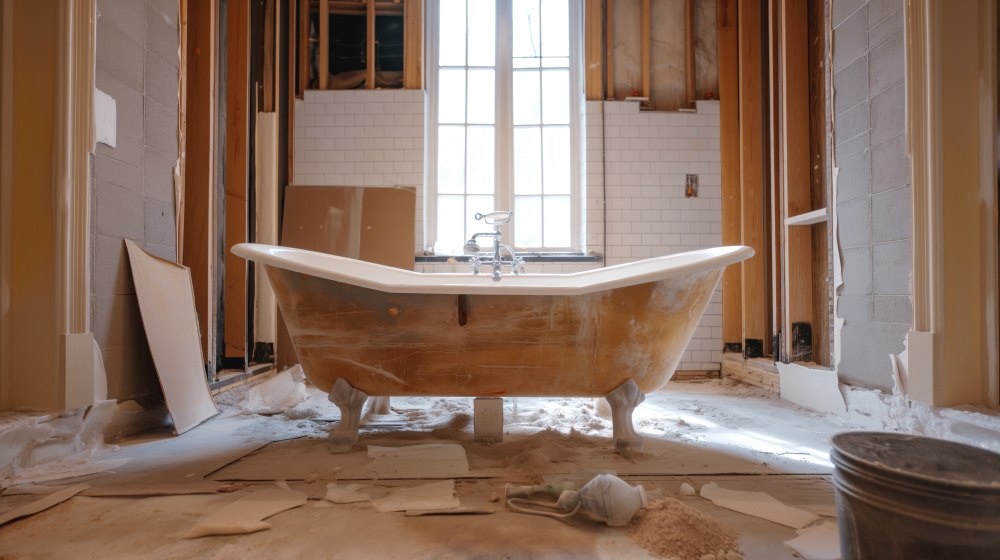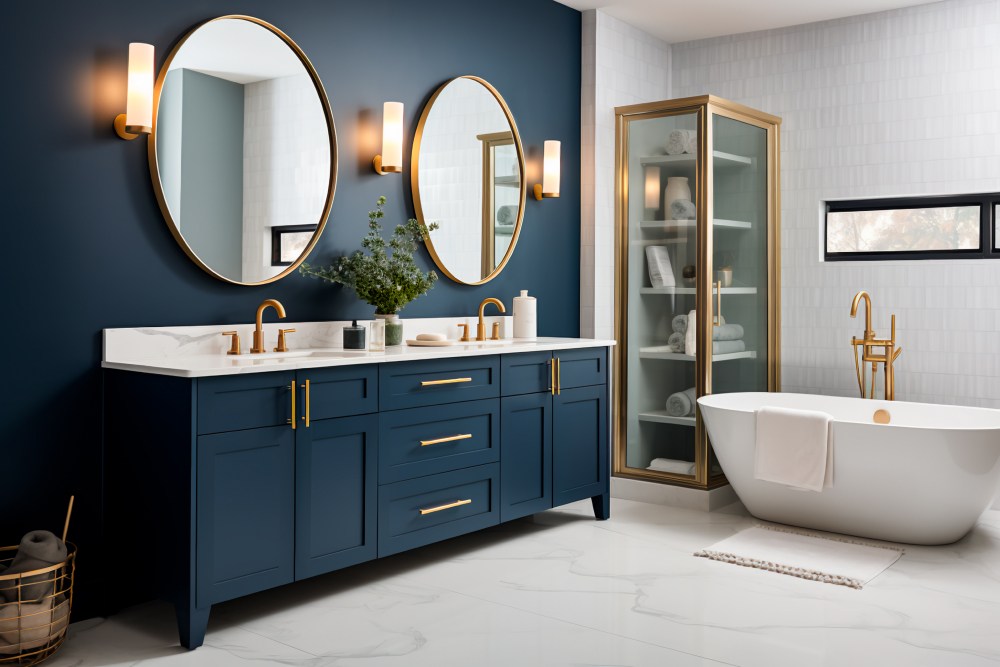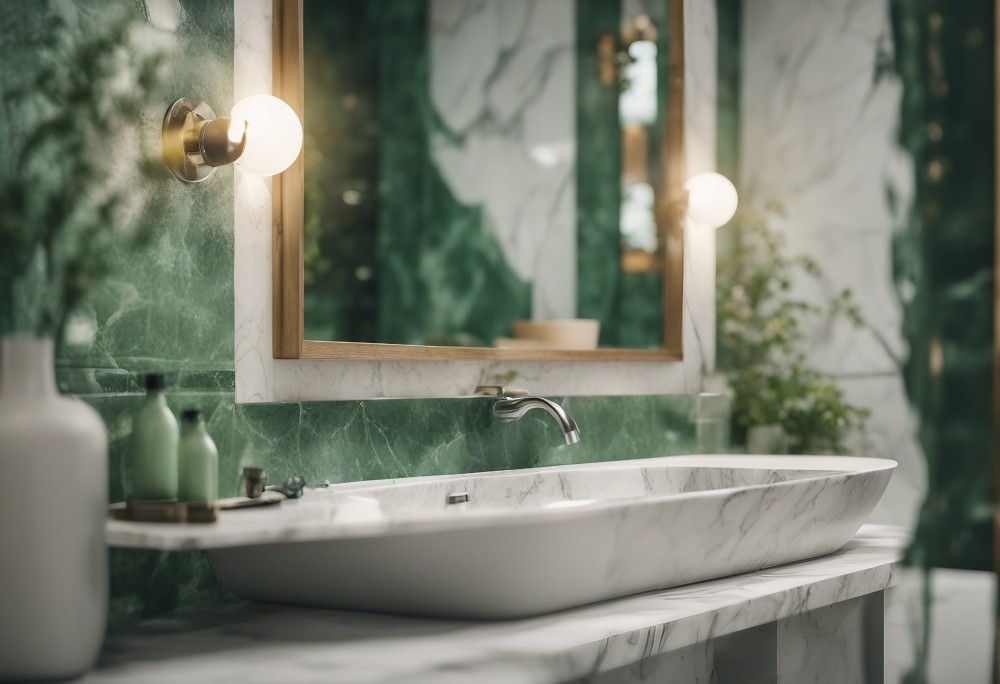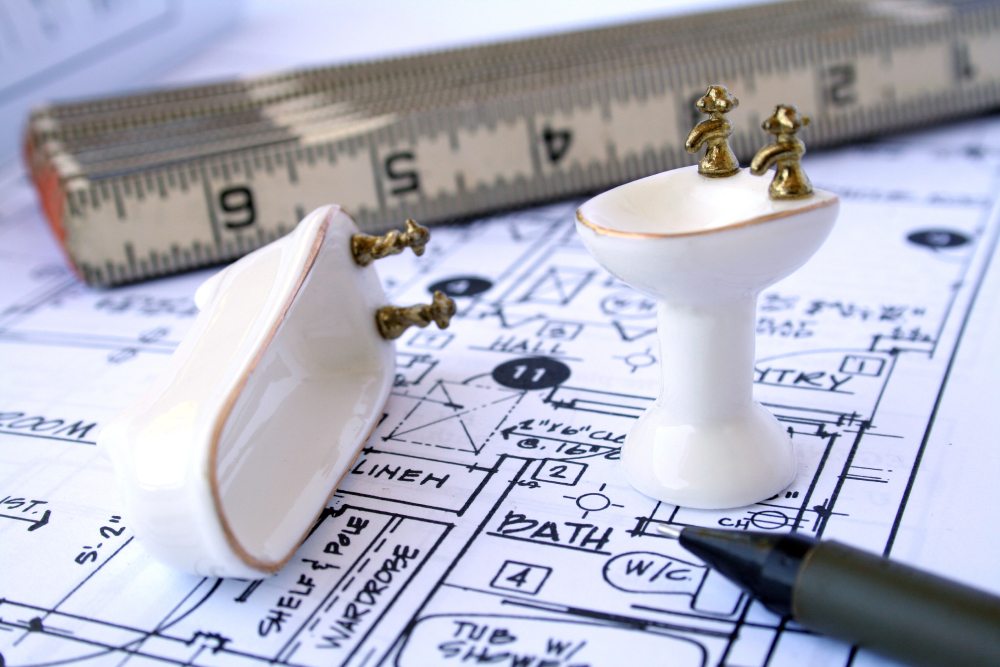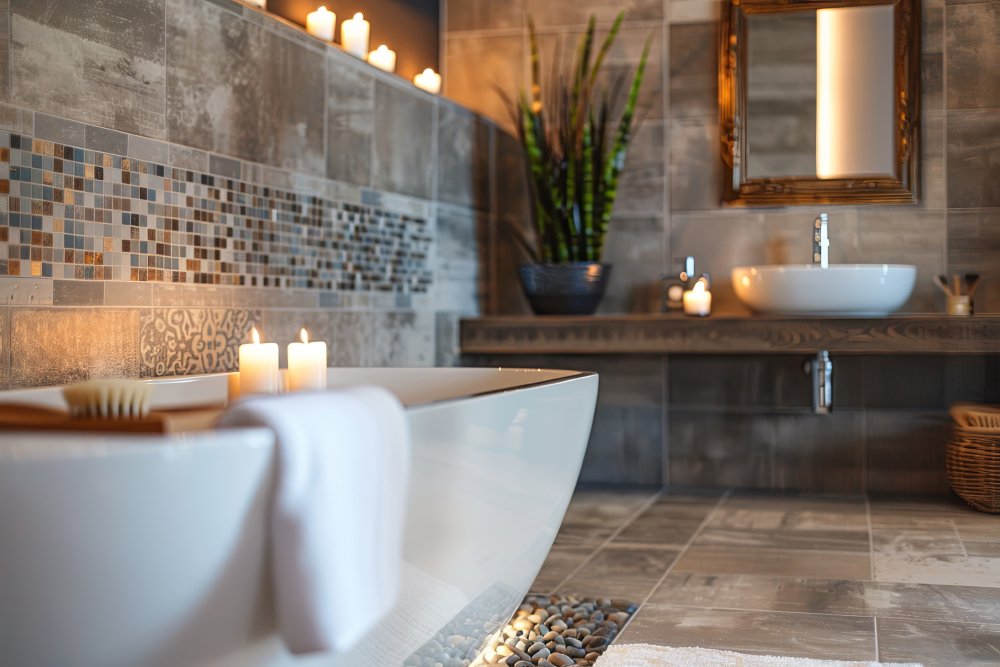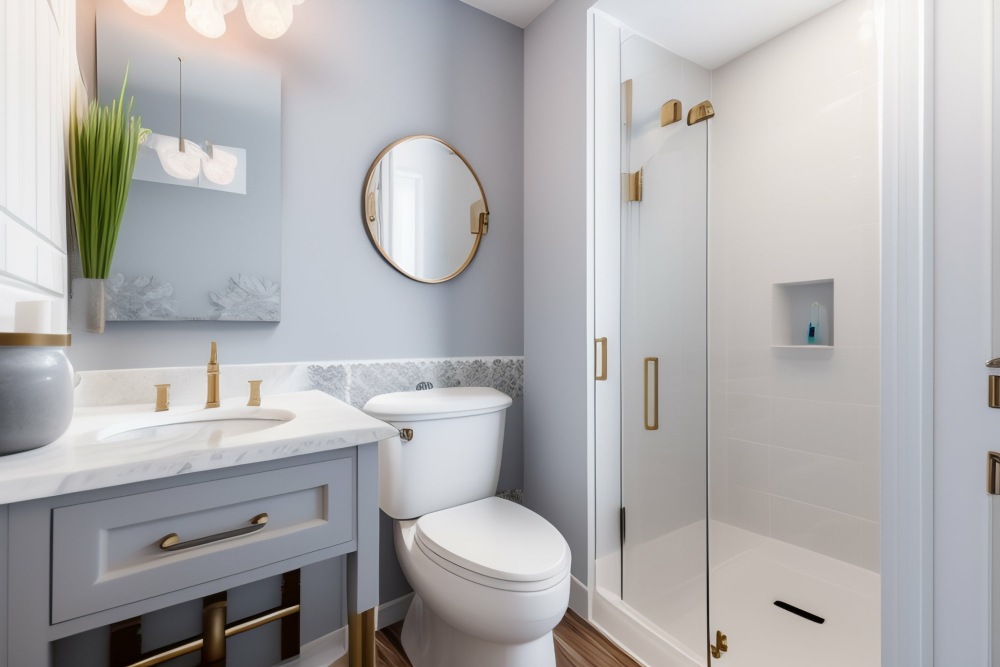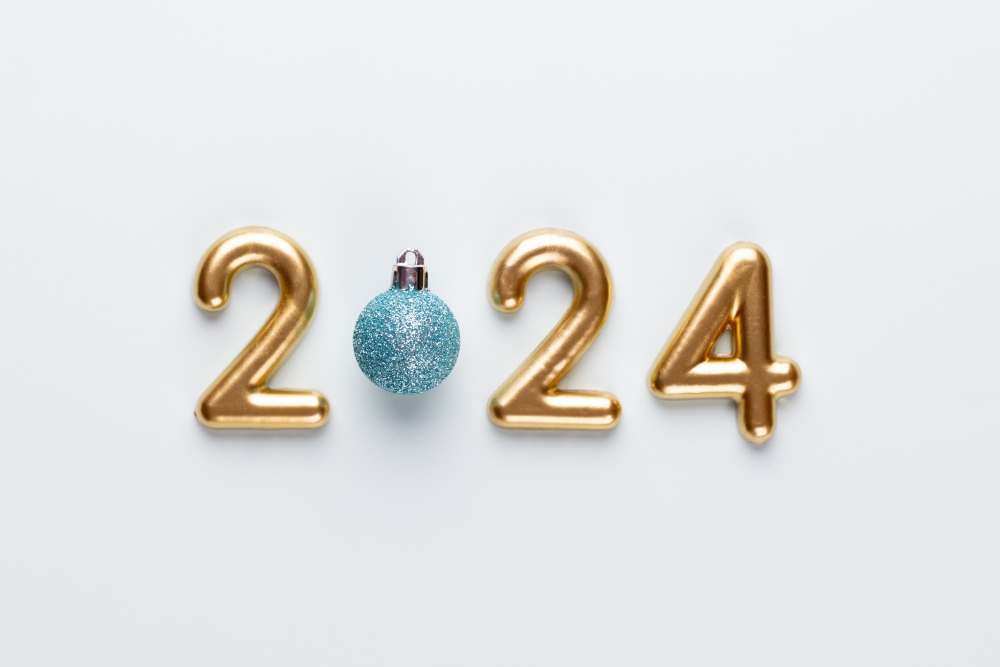1. Ceramic and Porcelain Tile
Overview: Ceramic and porcelain tiles are among the most popular choices for bathroom flooring due to their water resistance, durability, and variety of styles.Pros:
- Water Resistance: Both ceramic and porcelain tiles are highly resistant to water, making them ideal for wet areas like bathrooms.
- Durability: These tiles are extremely durable and can last for decades with proper care.
- Variety of Styles: Available in numerous colors, patterns, and finishes, tiles can mimic the look of natural stone, wood, or even fabric.
- Low Maintenance: Easy to clean and resistant to stains and scratches.
- Cool to the Touch: Tiles stay cool in warm climates, providing a refreshing feel underfoot.
- Cold Surface: Tiles can feel cold in colder climates, which may be uncomfortable during winter.
- Hard Surface: The hard surface can be uncomfortable to stand on for long periods and may cause breakage if heavy items are dropped.
- Installation: Professional installation is recommended, which can add to the overall cost.
- Grout Maintenance: Grout lines can stain and require regular cleaning and sealing.
2. Vinyl Flooring
Overview: Vinyl flooring is a versatile and budget-friendly option that has gained popularity due to its water resistance and ease of installation.Pros:
- Water Resistance: Vinyl is highly water-resistant, making it suitable for bathrooms.
- Comfort: Softer and warmer underfoot compared to tile or stone.
- Easy Installation: Available in peel-and-stick or click-lock planks, making it a good option for DIY projects.
- Affordability: Generally more affordable than other flooring options.
- Variety: Comes in a wide range of styles, including designs that mimic wood, stone, and tile.
- Durability: Lower-quality vinyl can be prone to scratches, dents, and tears.
- Appearance: While high-quality vinyl can mimic other materials, it may not have the same premium look as natural stone or hardwood.
- Off-Gassing: Some vinyl products can release VOCs (volatile organic compounds), which may affect indoor air quality.
- Not Biodegradable: Vinyl is not an environmentally friendly option as it is made from petroleum-based materials.
3. Natural Stone
Overview: Natural stone flooring, such as marble, granite, slate, and travertine, adds a luxurious and timeless appeal to bathrooms.Pros:
- Aesthetic Appeal: Natural stone offers unique and elegant aesthetics that can enhance the overall look of your bathroom.
- Durability: Stone is extremely durable and can last a lifetime with proper maintenance.
- Variety: Each piece of stone is unique, providing a one-of-a-kind appearance.
- Increased Home Value: Stone flooring can add value to your home due to its premium look and longevity.
- Cost: Natural stone is one of the more expensive flooring options.
- Maintenance: Requires regular sealing to maintain its water resistance and prevent staining.
- Cold Surface: Stone can feel cold underfoot, which may be uncomfortable in colder climates.
- Slippery When Wet: Some types of stone can become very slippery when wet, posing a safety risk.
Join HICP Homeowner’s Alliance
Connect with experts, get special discounts and enjoy member benefits
4. Laminate Flooring
Overview: Laminate flooring is an affordable alternative to hardwood that offers a similar look. However, its suitability for bathrooms depends on the product’s water resistance.Pros:
- Affordability: Laminate is generally less expensive than hardwood or natural stone.
- Variety: Available in various styles and finishes that can mimic wood or stone.
- Easy Installation: Often features click-lock installation, making it suitable for DIY projects.
- Durability: Resistant to scratches and dents.
- Water Resistance: Standard laminate is not water-resistant and can be damaged by moisture. Water-resistant or waterproof options are available but may be more expensive.
- Appearance: While it can mimic other materials, it may not have the same premium look as real wood or stone.
- Replacement: Damaged laminate can be difficult to repair and may need to be replaced entirely.
- Not Biodegradable: Laminate flooring is not environmentally friendly, as it is made from synthetic materials.
5. Engineered Wood
Overview: Engineered wood flooring combines a real wood veneer with a plywood or high-density fiberboard (HDF) core, offering better moisture resistance than solid hardwood.Pros:
- Aesthetic Appeal: Provides the beauty of real wood with improved moisture resistance.
- Stability: Less prone to warping and swelling than solid hardwood.
- Variety: Available in various wood species, finishes, and plank sizes.
- Increased Home Value: Adds a premium look that can increase your home’s value.
- Water Resistance: While more moisture-resistant than solid wood, engineered wood can still be damaged by prolonged exposure to water.
- Cost: More expensive than laminate or vinyl but less costly than solid hardwood.
- Maintenance: Requires regular maintenance, including refinishing, to keep it looking its best.
- Installation: Professional installation is recommended, which can add to the overall cost.
6. Cork Flooring
Overview: Cork flooring is an eco-friendly option made from the bark of cork oak trees. It offers a unique look and feel for bathroom floors.Pros:
- Eco-Friendly: Cork is a sustainable and renewable resource.
- Comfort: Soft and warm underfoot, providing a comfortable surface.
- Natural Insulation: Offers good thermal and acoustic insulation.
- Water Resistance: Naturally resistant to water, mold, and mildew when properly sealed.
- Durability: Can be susceptible to dents and scratches from heavy furniture or sharp objects.
- Maintenance: Requires regular sealing to maintain water resistance and prevent damage.
- Color Fading: Can fade when exposed to direct sunlight over time.
- Cost: Can be more expensive than vinyl or laminate.
7. Concrete Flooring
Overview: Concrete flooring offers a modern and industrial look, with a high level of durability and customization options.Pros:
- Durability: Extremely durable and long-lasting.
- Customization: Can be stained, polished, or textured to create various looks.
- Low Maintenance: Easy to clean and maintain.
- Water Resistance: Naturally resistant to water when properly sealed.
- Cold Surface: Can feel cold underfoot, which may be uncomfortable in colder climates.
- Hard Surface: The hard surface can be uncomfortable to stand on for long periods and may cause breakage if heavy items are dropped.
- Cost: Professional installation and finishing can be costly.
- Cracking: Can develop cracks over time, especially if not properly installed or maintained.
8. Bamboo Flooring
Overview: Bamboo flooring is an eco-friendly option that offers a unique look similar to hardwood. It is made from the fast-growing bamboo plant.Pros:
- Eco-Friendly: Bamboo is a renewable resource that grows quickly.
- Durability: Strand-woven bamboo is highly durable and resistant to dents and scratches.
- Aesthetic Appeal: Offers a unique and natural look that can enhance the overall aesthetic of your bathroom.
- Water Resistance: More water-resistant than hardwood, but still requires proper sealing and maintenance.
- Moisture Sensitivity: Can be damaged by prolonged exposure to water if not properly sealed.
- Cost: Can be more expensive than laminate or vinyl.
- Color Fading: Can fade when exposed to direct sunlight over time.
- Environmental Impact: Some bamboo flooring products may contain adhesives and finishes with VOCs.
9. Linoleum Flooring
Overview: Linoleum is a natural flooring option made from renewable materials like linseed oil, cork dust, and wood flour. It offers a retro look and is gaining popularity for its eco-friendly properties.Pros:
- Eco-Friendly: Made from natural, renewable materials and biodegradable.
- Durability: Resistant to water, mold, and mildew when properly sealed.
- Comfort: Soft and warm underfoot, providing a comfortable surface.
- Low Maintenance: Easy to clean and maintain.
- Cost: Can be more expensive than vinyl.
- Color Fading: Can fade when exposed to direct sunlight over time.
- Installation: Professional installation is recommended for best results.
- Moisture Sensitivity: Requires proper sealing to maintain water resistance.
Choosing the right bathroom flooring involves balancing aesthetics, functionality, and budget. Each flooring option has its own set of advantages and disadvantages, making it important to consider your specific needs and preferences. Ceramic and porcelain tiles offer durability and water resistance, while vinyl and laminate provide affordability and easy installation. Natural stone adds a luxurious touch, whereas engineered wood and cork offer eco-friendly options. Concrete and bamboo provide unique looks and durability, while linoleum is an eco-conscious choice.
By carefully evaluating the pros and cons of each option, you can select the best flooring for your bathroom that meets your design vision, lifestyle needs, and budget constraints. With the right choice, you can create a beautiful, functional, and long-lasting bathroom floor that enhances the overall appeal of your home.

